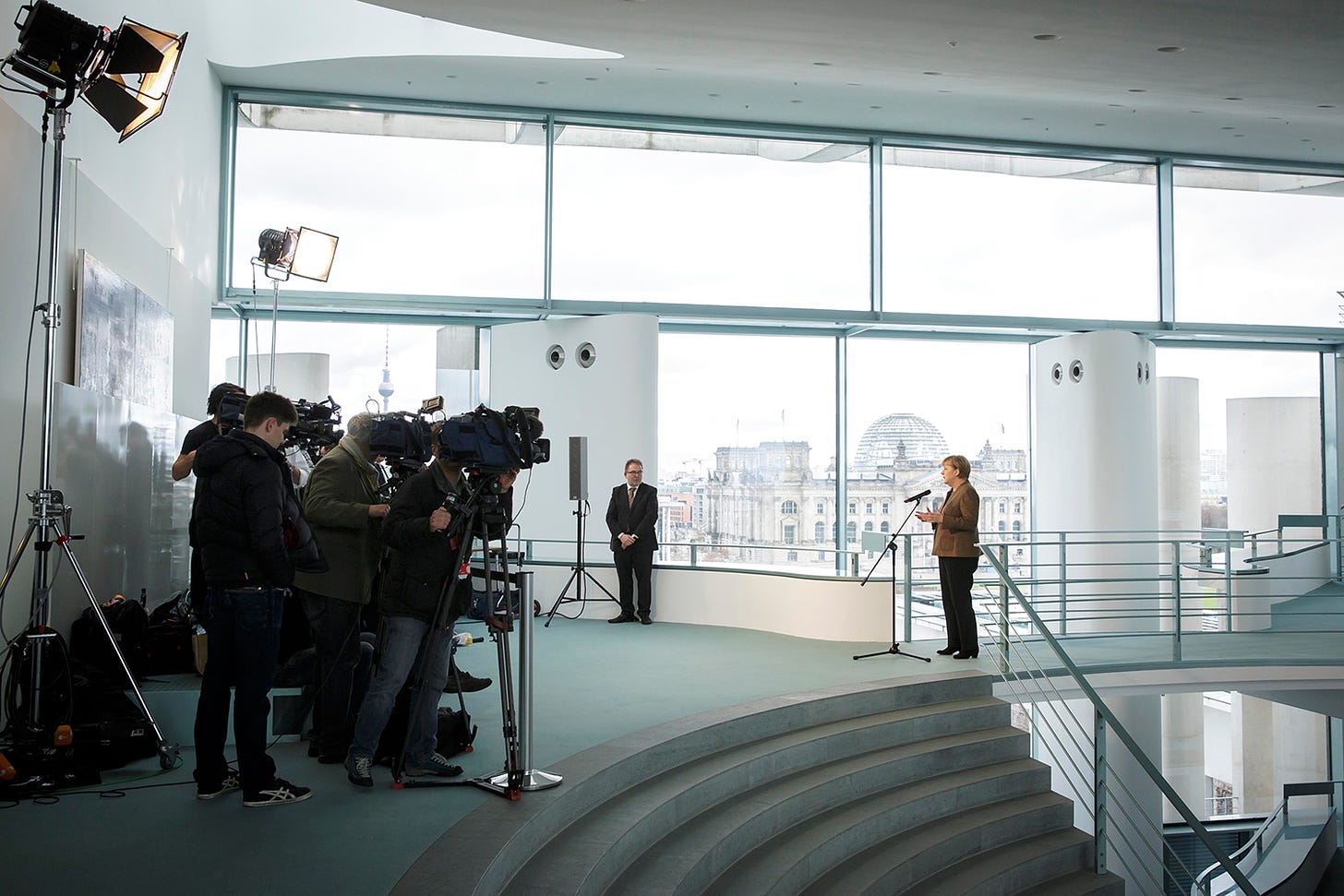Merkel's Party Doesn't Need More Ideology
German voters prize the Christian Democrats for their competence, not their beliefs.

Saturday’s election for the leadership of Germany’s Christian Democratic Union (CDU) is also a debate over the future identity of the party.
Friedrich Merz, the darling of the right, would arrest Angela Merkel’s twenty-year slide to the center and take the fight to the far right with small-government and law-and-order policies.
Armin Laschet, the prime minister of North Rhine-Westphalia, and Norbert Röttgen, a parliamentarian, fear Merz would throw away Merkel’s gains with younger and women voters. They argue for continuity (critics might say muddling through), with Röttgen proposing a slightly more modernizing program.
Waiting in the wings are Jens Spahn, the ambitious health minister, and Markus Söder, the prime minister of Bavaria. Neither man is in the running for the party leadership, but they may yet hope to be nominated for the chancellorship. Spahn is a younger version of Merz, Söder a more solid version of Laschet.
Public opinion
The secret of Merkel’s success has been that she seldom challenged public opinion. She abolished compulsory military service, expanded government-funded child care, introduced a national minimum wage, legalized gay marriage and shut down Germany’s nuclear power plants with the support of the majority of the country — and, crucially, the support of the Social Democrats, the Christian Democrats’ traditional rivals, with whom Merkel formed three coalitions.
Indeed, the five policies I just listed were all Social Democratic (or Green) policies before Merkel made them her own.
Guy Chazan cites Mainz University historian Andreas Rödder in the Financial Times, who argues the “price” the CDU has paid for drawing environmentally conscious and socially liberal voters into the party is a loss of “programmatic identity”.
Put another way: the “price” the party has paid for softening its ideology is… huge electoral success.
Some price.
Ideology
The Christian Democrats are polling at 35-37 percent support for the election in September, up from 33 percent in the last election but still below the 41.5 percent Merkel got in 2013.
Some of that support may be a Merkel bonus, and I don’t think the Christian Democrats should underestimate the possibility that, in a duel with Merz, Olaf Scholz, the prudent finance minister and Social Democratic Party leader, may be considered a safer pair of hands by German voters.
But there is hardly cause for alarm. Calls for ideological clarity (coming from observers who ironically reject Merz, the most ideological candidate) are ahistoric.
Bernd Ulrich writes in Die Zeit that the CDU has been wary of ideology from its founding and does better when it’s perceived as competent.
Konrad Adenauer famously promised voters “no experiments” and to this day that is an apt slogan for his party.
Far from lamenting this ideological flexibility, Germans should be glad to have a proper conservative party that doesn’t block progress but merely delays it until the public is ready.



